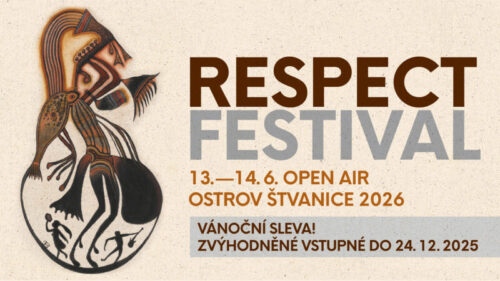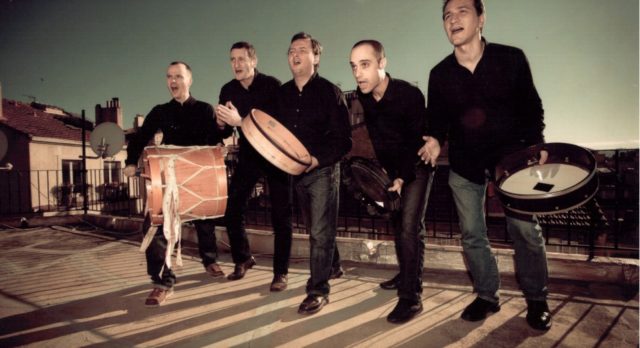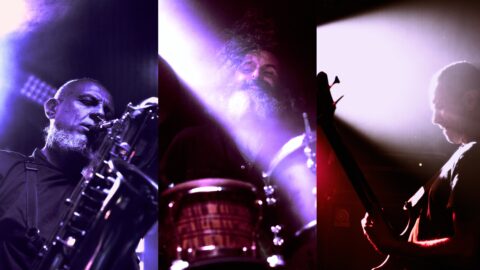Since 2001, in the famous district of La Plaine in Marseille, Lo Còr de la Plana has been reinventing southern vocality, mixing it with the archaic sonorities of a wild, harsh and merging Mediterranean sea. Contrary to other traditions, polyphony – what is more, male polyphony – did not exist in the occitan vocal heritage until Manu Théron decided to invent it. He brought together for this project four other infectiously energetic singer-percussionists: Benjamin Novarino-Giana, Sébastien Spessa, Denis Sampieri and Rodin Kaufmann.
eyond “particularistic” referents (even when the rooting in Marseille is a support and the occitan language a point of view), the organic musical universe developing in Lo Còr de la Plana glorifies every influence, from concrete music to the Ramones, from Bartok to The Velvet Underground, from the Saharan stretches of desert to Southern Italy.
The choir’s songs snap, their feet stamp and their hands clap to the beat of bendirs and tamburellos.
Don’t look in Lo Còr for some bravado about a fantasized regional identity, but, instead, an approach that places a history, an heritage at disposal, inviting all those, whether or not they were born here, to know them and appropriate them. For there is no question for them to interrogate the memory through what it immobilizes, but in its turbulences, in the Dionysian obscenities it can wake up, in its weaknesses too, and in the permanent danger of death which lies in wait for it in each of its excesses.
This incandescent memory has been the band’s working material since its foundation, and if they know how to make it common and unique at the same time, to share it in order to give it flesh, it is because what pulses first in Lo Còr, as its occitan name tells it, is the heart.
Religious, dancing, or political songs, as three albums go by, acclaimed by the critics, the professionals and the audience, Lo Còr de la Plana has become the referent band of contemporary occitan musical creation. No wonder it regularly tours throughout world.






















